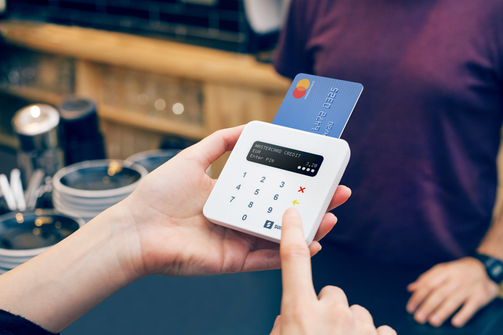In our time, payment methods are almost completely dematerialized. A continuously increasing number of merchants and freelancers are turning towards card payments. And even if, for one reason or another, some maintain their preference for cash, physical currency is tending to become scarce in commercial transactions. Why is this so? How can the dominance of bank cards over physical currency be explained?
The advantages of the bank card
From their inception, electronic payments quickly became embedded in our culture. Merchants, freelancers, and buyers all noted the speed, simplicity, security, and flexibility they offered.
And while a few skeptics continue to criticize the cost of the devices and the commissions charged on transactions, these arguments lose their relevance in the face of the multiple advantages offered by bank card payments. We highlight some of these advantages below.
An increase in impulse purchases and turnover
According to analyses by some marketing specialists, accepting bank card payments is an effective way to boost sales and increase turnover.
In fact, accepting bank cards encourages impulse purchases. Keep in mind that with a card, your customer carries much more than they could ever carry with a physical wallet. In essence, they carry their entire bank account.
In-store, they can spend as much as their bank account allows, with the added advantage that they can make repeated payments if the amount to be paid exceeds the withdrawal limit.
Healthier, clearer, and more rigorous accounting
It must be said that bank cards protect merchants and freelancers from the many risks inherent in commercial activities.
For example, they avoid falling into the trap of bounced checks since the sum to be collected must be immediately available in the customer’s account for the transaction to be validated.
They also minimize the risks of losing money, the difficulties related to change, and other cash flow hassles.
More secure financial management
Not having to handle cash in-store or handling only a minimal volume is rather beneficial. It protects you from money loss on one hand, and on the other hand from store robberies or theft on the way to the bank.
Indeed, card terminals record transactions made, print a receipt for each operation, and offer more ease in keeping track of daily sales at the end of the day.
A competitive advantage
In most cases, buyers prefer to carry little cash on them. The consequence is systematic.
Businesses that accept card payments tend to attract more customers than those that do not. Thus, many merchants equip themselves with terminals to catch up with the competition and stand out from competitors who do not have them.
Clearly, the stakes for bank cards are significant.


